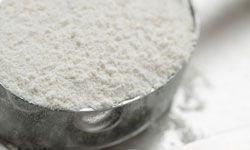Everything in your body is sending you the signal that it's time to move your bowels, but nothing's moving. You feel bloated and uncomfortable, but when you try to go, nothing happens. Or, if you do finally go, it hurts.
Constipation occurs for many different reasons. Stress, lack of exercise, certain medications, artificial sweeteners and a diet that's lacking fiber or fluids can each be the culprit. Certain medical conditions, such as an underactive thyroid, irritable bowel syndrome, diabetes and cancer, also can cause constipation. Even age is a factor. The older we get, the more prone we are to the problem.
Advertisement
And constipation is a problem, although it's not an illness. It's simply what happens when bowel movements are delayed, compacted and difficult to pass. Once you understand the basics of constipation, it's possible to treat it. Depending on the severity of the case, it may respond to simple home remedies, or it may require medical intervention.
What's Normal?
Some people mistakenly believe they must have a certain number of bowel movements a day or a week or else they're constipated. That couldn't be further from the truth, although it's a common misconception. What constitutes "normal" is individual and can vary from three bowel movements a day to three a week. You'll know if you're constipated because you'll be straining a lot in the bathroom, you'll produce unusually hard stools, and you'll feel gassy and bloated.
Laxatives Aren't No. 1
It's not a good idea to use laxatives as the first line of attack when you're constipated. They can become habit-forming to the point that they damage your colon. Some laxatives inhibit the effectiveness of medications you're already taking, and there are laxatives that cause inflammation to the lining of the intestine.
Conventional thinking on laxatives is that if you must take one, find one that's psyllium- or fiber-based. Psyllium is a natural fiber that's much gentler on the system than ingredients in many of the other products available today.
Now that you understand what it means to be constipated, it's time to learn some tried and ture home remedies for this disorder. Go to the next section to learn ways that you can find relief from constipation in your very own kitchen.
This information is solely for informational purposes. IT IS NOT INTENDED TO PROVIDE MEDICAL ADVICE. Neither the Editors of Consumer Guide (R), Publications International, Ltd., the author nor publisher take responsibility for any possible consequences from any treatment, procedure, exercise, dietary modification, action or application of medication which results from reading or following the information contained in this information. The publication of this information does not constitute the practice of medicine, and this information does not replace the advice of your physician or other health care provider. Before undertaking any course of treatment, the reader must seek the advice of their physician or other health care provider.







